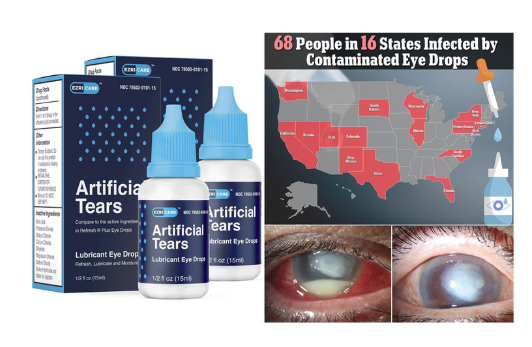Why Preservative-Free Eye Drops Are Better for Your Eyes (Plus Top Picks!)
Eye drops are commonly used to treat dry eye, allergies, and eye redness. However, many traditional eye drops contain preservatives like benzalkonium chloride (BAK), which can cause irritation and long-term side effects. Preservative-free eye drops are a gentler alternative, especially for those who use them frequently.
In this guide, we’ll explore the benefits of preservative-free eye drops, potential risks, and expert-recommended products to consider.
Why Preservative-Free Eye Drops Are Better for Your Eyes (Plus Top Picks!)
Why Choose Preservative-Free Eye Drops?
1. Gentler on the Eyes
Preservative-free eye drops are particularly beneficial for individuals with sensitive eyes or chronic dry eye syndrome. Traditional preservatives, such as benzalkonium chloride (BAK), can disrupt the natural tear film and lead to increased irritation over time. For patients with severe dry eye disease, preservative-free drops are often more effective. Research has demonstrated that these formulations can significantly alleviate symptoms while causing minimal to no adverse effects.
2. Better for Frequent Use
Preservative-free eye drops are also indicated for people who need to use other prescription eye drops regularly (e.g. for glaucoma treatment or before/after cataract surgery). Since they lack preservatives, these drops can be used multiple times per day without increasing the risk of eye damage or allergic reactions.

3. Ideal for Contact Lens Wearers
Some preservatives can bind to contact lenses, causing discomfort and blurry vision. Preservative-free options provide hydration without leaving residue.
Eye drops for contact lubrication focus on “wetting” your eyes, not necessarily including other ingredients that will soothe irritation.
“It’s very important that contact lens wearers use the drops/solutions recommended for them as those drops would be appropriate for [their] condition and specifically compatible with contact lenses.”
— Barbara Horn, president, American Optometric Association
4. Reduced Risk of Allergic Reactions
For those prone to eye allergies, preservative-free drops minimize the risk of redness, itching, and swelling.
The Dangers of BAK in Eye Drops
Recent studies have found that BAK can make antibiotics less effective and actually be toxic to the structure of your eye.
According to Wolfe, “Benzalkonium chloride acts as a pro-inflammatory agent on the surface of the eye.”
A 2018 review strongly suggests that BAK is counterproductive to the treatment of dry eye symptoms. It works as a detergent, breaking up the layer of oil that rests on top of your tear film. Over time, preservative-based eye drops can actually lead to dry eye syndrome.
Wolfe adds, “BAK is something that a number of patients are simply allergic to, and exposure to it can lead to redness, irritation, and ocular inflammation.”

Best Preservative-Free Eye Drops Recommended by Ophthalmological Experts
1. For Dry Eyes
-
Link Novotane
-
Link Afenemi
-
Link Gel B5
-
Link Phiphos
2. For Short-sighted
-
Myodrops in different concentrations
3. For Glaucoma
4. For nourishing eyes
-
Hexami newlight plus
-
Hexami cataract
When to See a Doctor
Wolfe cautions consumers who may want to treat ongoing eye conditions with drops.
“If your eyes are producing thick mucus discharge, have become very sensitive to light, or are excessively red and itchy, it’s likely you’re dealing with something that over-the-counter drops were not designed to treat.” — Wolfe
“Contact lens wearers should be especially wary of any pain or sensitivity to light, as this can be a sign of corneal ulceration, which requires immediate medical treatment.”
A preservative-free product called Restasis Multidose is also available for chronic dry eye, but so far only by prescription. If your dry eye symptoms persist, you may want to ask your doctor about prescription eye drops.
See an eye doctor if you suspect an eye infection, as they can prescribe antibiotic drops. Some common infections, such as pink eye, clear up on their own, but it’s best to seek medical advice.
Final Thoughts
Preservative-free eye drops are becoming widely available, and early research indicates they may be more effective at lubricating and protecting your eyes. Doctors recommend them as a safer alternative to traditional eye drops with preservatives.
Next time you’re looking to switch up your eye care routine, consider trying a preservative-free option.
Frequently Asked Questions
Q: Are preservative-free eye drops better? A: Yes, especially for those with sensitive eyes, allergies, or chronic dry eye syndrome.
Q: Can I use preservative-free eye drops daily? A: Absolutely! Since they lack harsh preservatives, they’re safe for frequent use.
Q: Where can I buy preservative-free eye drops? A: Contact us, Hanoi CPC1 Pharmaceutical JSC
By choosing preservative-free eye drops, you ensure better eye health and comfort in the long run.
